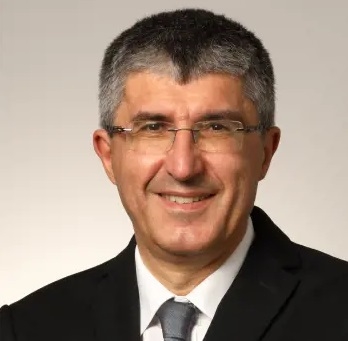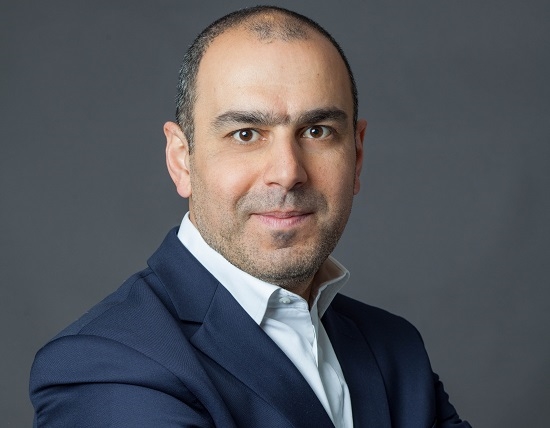Spectrum Markets CEO Maan reflects on 2023 and prospects for 2024

By Nicky Maan, Spectrum Markets’ CEO
How did 2023 go in terms of volume, and what were the strengths?
2023 has been the fourth full calendar year in business for Spectrum Markets. These years have seen the unfolding of several conditions that proved challenging for markets, but we have been able to navigate through the difficulties demonstrating the resilience and the reliability of our trading venue.
This allowed us to consolidate our position and to become an important partner for significant industry players. The partnerships we have been able to sign during the years are the best testament to the growing role of Spectrum in the securitized derivatives landscape.
2023 has been a significant year. Despite more challenging market conditions and a wider trading uncertainty, trading volume for the year grew by 14%, with 1.62 billion securities traded in 2023 compared to 1.42 billion the year before. This volume was executed across nearly 2.5 million trades, with 33.9% of those taking place outside of traditional hours (i.e. between 17:30 and 9:00 CET). Furthermore, Spectrum reported a 9% increase in the total value of order book turnover compared to the previous year, hitting €3.62 billion (£3.1bn) in 2023.
Considering all the challenges for the trading and investment space, with declining volumes seen across the industry, I’m really pleased that Spectrum’s performance remained relatively robust, with our volumes showing notable resilience and continuing to increase from last year.
You have made important agreements to expand partners and members. What is the long-term goal?
During 2023, the firm unveiled several important initiatives and milestones. UniCredit Bank GmbH joined Spectrum as a new member of the venue, making a range of warrants and constant leverage warrants accessible to retail investors via their broker or bank. With three issuers now live on the venue, the number of instruments available on Spectrum to retail traders across Europe has increased by more than six times, year on year.
Another key partnership was the one with the independent Italian retail broker Directa, which allows more retail investors to trade securities, 24/5. In a strategic move, Spectrum also signed a collaboration with ICE Data Services Italy, a subsidiary of Intercontinental Exchange, Inc. (NYSE: ICE), making Spectrum's reference data more broadly accessible across financial platforms, and with two key European industry associations such as the German Structured Securities Association (BSW) and the Italian Association of Certificates and Investment Products (ACEPI).
Together, these partnerships represent a significant next step for Spectrum’s ongoing growth strategy, expanding the range of products available and making these accessible to more investors more easily, allowing trading via a single pan-European ISIN, through which investors benefit from a deeper liquidity pool.
After the SEC’ approval of the first spot ETFs on Bitcoin, the retail buzz has also shifted to Certificates. What will be the effect of this decision?
Spectrum Markets was the first regulated trading venue to make bitcoin-linked derivatives available on a pan-European basis, 24 hours a day and five days a week, something that is particularly important for what is a volatile, around-the-clock asset.
We welcome the SEC’s decision, as enabling US investors to access bitcoin via a highly-regulated and transparent wrapper like an ETF responds to this increasingly widespread desire for greater regulatory protection for the asset class. We could debate the way this decision was made, as it is not part of a uniform and transparent governance framework.
We have always been strong advocates of retail investors’ rights to access the same degree of participation as professional accounts, but it is crucial they operate in a transparent and protected environment.
In the EU, a Bitcoin ETF is still not possible under existing regulation as UCITS does not allow a single reference price for an ETF underlying. Still, we continue to see there are retail investors across Europe that have an appetite for investing in bitcoin, and this might lead EU authorities to find an accommodating solution that would prioritise investor’s protection.
What do you expect in 2024?
Securitised derivatives have grown to become an asset class on their own, with more and more retail investors using them to complement their investment portfolios. As such, certificates have now moved out of the narrow and limited market of the most experienced and sophisticated investors, to establish themselves as an asset class in their own right, alongside more traditional instruments.
All the players operating in the industry are being called upon to play their part in shaping its evolution and we want to be at the forefront of such changes.
Looking ahead to 2024, our focus remains on enhancing and expanding our venue by improving connectivity options and trading infrastructure, as well as welcoming more members to the venue.
Found this useful?
Take a complimentary trial of the FOW Marketing Intelligence Platform – the comprehensive source of news and analysis across the buy- and sell- side.
Gain access to:
- A single source of in-depth news, insight and analysis across Asset Management, Securities Finance, Custody, Fund Services and Derivatives
- Our interactive database, optimized to enable you to summarise data and build graphs outlining market activity
- Exclusive whitepapers, supplements and industry analysis curated and published by Futures & Options World
- Breaking news, daily and weekly alerts on the markets most relevant to you



